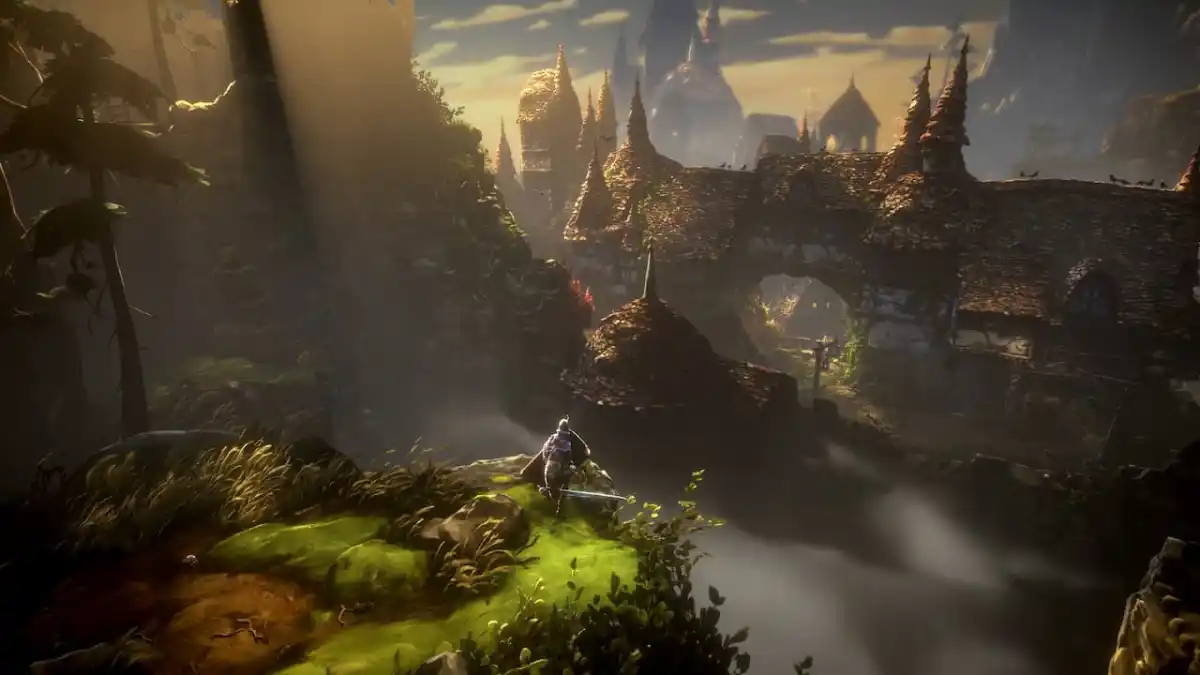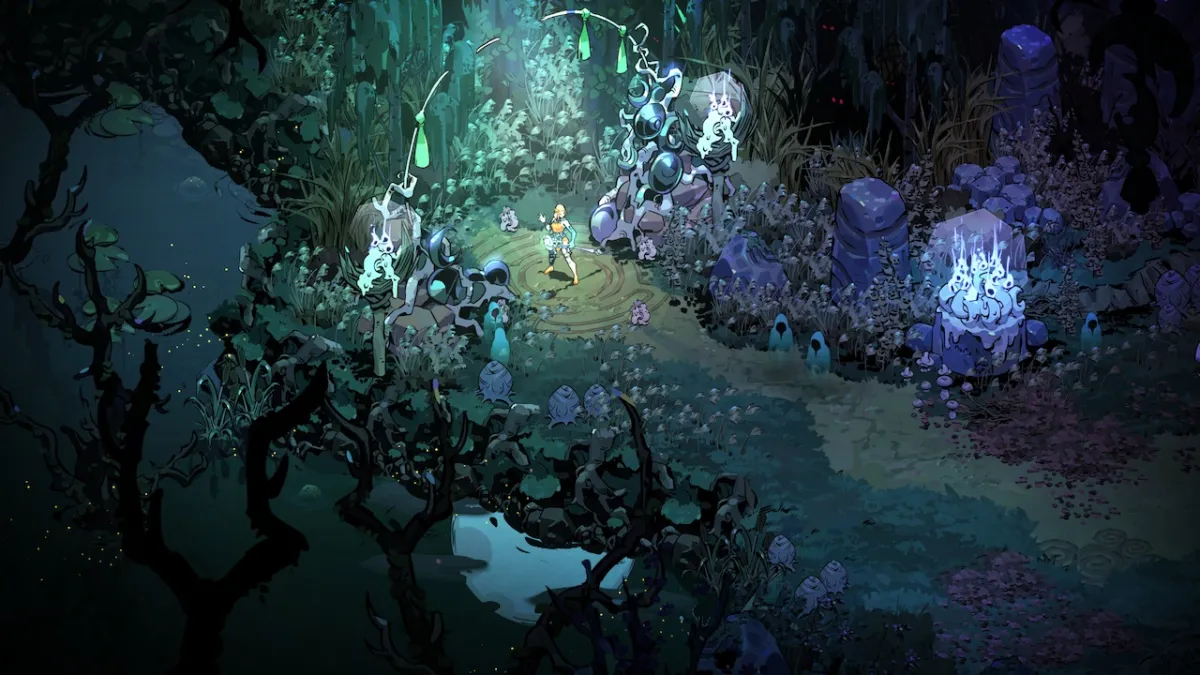The Video Game Awards have almost always been a mixed bag. I remember when it first appeared on Spike TV and everything was exciting. It was hosted by Geoff Keighley! “Maybe they could be the Oscars of video games,” we said.
Now that notion seems laughable. And while we might make fun of the Awards show, what I really feel is disappointment. I’m not quite sure what it is that went so wrong. Maybe it’s the over the top lighting, or mediocre writing. But we’ve written about this already.
I recently learned that Canada has been hosting its own video game awards for 6 years now. They took place in Toronto just this past weekend.
I always forget just how big the game industry is in the country I’ve lived in my whole life. Canada’s 472 active game studios contribute $3 billion to Canada’s GDP each year, according to the Entertainment Software Association of Canada (ESAC). We develop internationally successful titles from major studios, most notably Ubisoft and Bioware but also from smaller indie studios like Capybara Games and Klei Entertainment.
Canadians have a subdued sense of pride, that blossomed at the awards show. The show wasn’t about the games so much as it was about taking a moment to acknowledge our pride and celebrate our success as a country. Sure, the games are fantastic. Our developers worked hard on them. But the focus of the Canadian Video Game Awards (CVAs) was that these games are Canadian.
Elias Toufexis, the actor behind Adam Jenson in Deus Ex: Human Revolution, was born in Montreal, Quebec. There is a long list of studios in Montreal thanks to the province of Quebec’s generous tax breaks. It’s one of Canada’s strongest game development hubs and also exhibits a lot of cultural pride.
Toufexis says the Canadian games industry doesn’t get enough credit.
“I don’t think enough people know that top tier video games are made in Canada with Canadian talent. I don’t think they know Outlast was made here. I don’t think they know games like Deus Ex or Mass Effect [are Canadian],” says Toufexis. “These are massive, huge games and they don’t know they’re made in Canada.”
When it comes to recognizing talent, no one needs it more than indie developers. While the vast majority of jobs in the games industry are with large firms, smaller companies make up 448 of the 472 active studios.
Any big budget AAA title is going to pull talent in from all over the globe. Sometimes this comes in the form of smaller studios around the world contributing small pieces the project. Other studios might contract work out to third parties to finish sections of work the lead studio doesn’t have the manpower, time, or resources for.
Normally, a large studio based in a Canadian city will hire people internationally, meaning not everyone who works on the game will be Canadian. For example, Syndicate’s soundtrack was composed by an American.
I’m not saying these games don’t deserve to be featured in the show. They absolutely do. These large firms are what put us on the map in the games industry. They breed talent and create an atmosphere for indie development scenes to grow in. More importantly, these companies have Canadian hearts and souls.
What I am saying is that for a show so concerned with recognizing local talent, it would have been nice to see more focus on the grassroots effort of independent developers. During the awards show, the advantage given to companies with the ability to pull more resources was most obvious with Alientrap’s Apotheon.
It was nominated in eight of the 18 categories and didn’t win anything. Apotheon lost to games made by Ubisoft four times, and the rest to other indie developers (who won six awards in all). Apotheon is an all Canadian game made by 10 people in Toronto and it lost time and time again to Ubisoft’s international conglomerate.
Conversely, Assassin’s Creed: Syndicate won five awards at the CVAs, including Game of the Year. That’s more than any other title. Ubisoft Quebec lead the development, but the game was a collaborative effort between nine different studios, only two of which are based in Canada.
Again, I don’t want to say the game didn’t deserve the awards. It certainly did. And it’s unclear how much foreign studios contributed. But I get a bad taste in my mouth when arguably the least Canadian-made game at the Canadian awards show can dominate the competition.
Many of the studios who are entirely composed of Canadians don’t have the resources to compete by hiring foreign help. Is Canada at its best when propped up by other countries? This seems like a bad message to send.
When I spoke to Toufexis, he emphasized Canadian’s ability to make games just as well as anyone else.
“People might think ‘oh they’re AA games not AAA games.’ But they don’t realize that we have the same aims to make the game as great as possible,” says Toufexis. “We are just as good as [Americans] at making games.”
The CVAs were far from doom and gloom for the indie scene. Two of the awards were “Fan’s Choice” awards, where people had the opportunity to vote online. Normally I expect the most recent and popular game to win these sorts of awards. However, I was pleasantly surprised to see N++ by Metanet Software Inc. win the “Fan’s Choice – Best Canadian-Made Game” award, which really sounds more like what the CVAs were all about.
Metanet Software was unable to attend the show. In their absence the acceptance speech was given by Jonathan Mak, the co-creator of Sound Shapes. His speech touched the hearts of everyone in the room.
“Eleven years ago, when they released the first iteration of this game, the term ‘indie games’ wasn’t even invented yet. The thought of two people making a video game was just too ridiculous and impossible,” said Mak. “But that did not stop them. They came out and dropped the megaton on the world that said it is possible,”
His message resonated with everyone who had ever struggled to get their start in the games industry. It was the antithesis to every award given out to a big budget game. It subverted the unstated claim that good games are made by people who can afford it. And when Assassin’s Creed won Game of the Year just moments later, it felt uninspired.
Mak went on. When he thanked Metanet, he was thanking the entire indie game community in Canada. The real award that night, was the camaraderie between the developers in the room.
“They inspired game creators not just here in Toronto, but all around the world too achieve the unthinkable. I know my career owes a lot to them,” said Mak. “So while Metanet thanks you for this award, I say thank you, Metanet, for all that you’ve done: for being trailblazers in the indie game scene, for being fundamental supporters of the Toronto games community, and for being just so fucking awesome. Thank you.”




